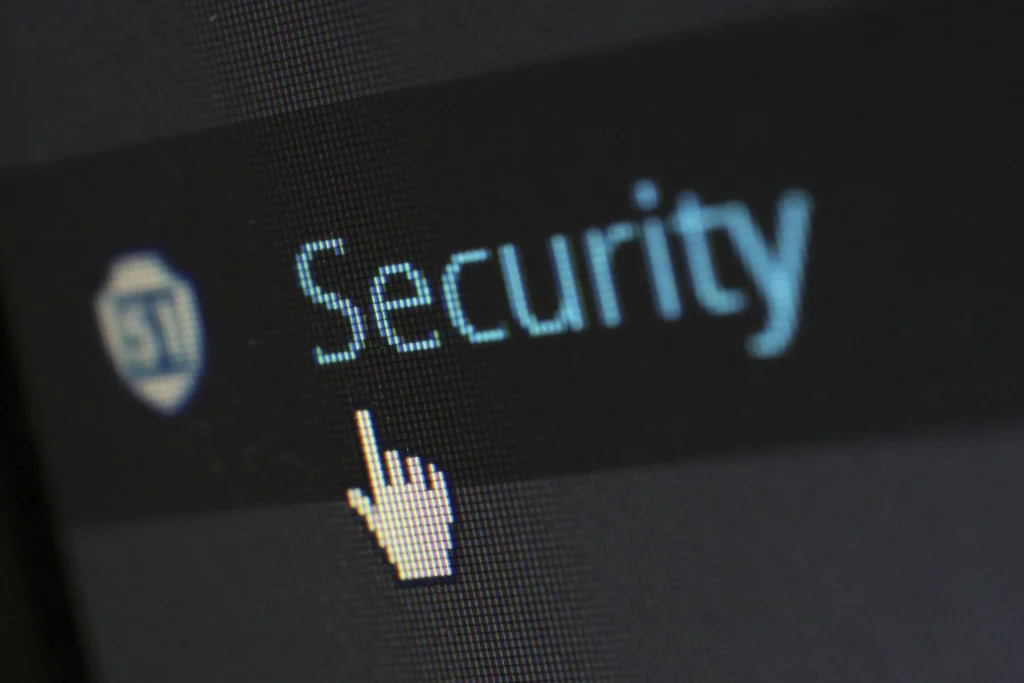The construction industry has rapidly embraced digital technologies to improve efficiency, collaboration, and project management. From Building Information Modeling (BIM) and cloud-based project management software to drones and IoT devices, the digital transformation of construction management has revolutionised how projects are planned, executed, and monitored. However, as the construction industry becomes increasingly reliant on digital tools and interconnected systems, it also faces new challenges and risks related to cybersecurity. Protecting sensitive data, ensuring the security of digital assets, and safeguarding against cyber threats have become critical concerns for construction companies worldwide.

This blog explores the importance of cybersecurity in construction management, the potential risks and threats the industry faces, the types of data that need protection, and best practices for safeguarding valuable information. Whether you are a construction manager, IT professional, or business owner, understanding the cybersecurity landscape is essential for protecting your organisation’s data and maintaining business continuity.
1. Understanding the Importance of Cybersecurity in Construction
Cybersecurity refers to the practices, technologies, and processes designed to protect systems, networks, and data from cyberattacks, unauthorised access, and damage. In the construction industry, cybersecurity is particularly important because:
Sensitive Data is at Risk: Construction companies handle a vast amount of sensitive information, including project plans, financial records, employee data, and client information. A data breach could result in significant financial losses, reputational damage, and legal liabilities.
Interconnected Systems are Vulnerable: Modern construction projects rely on interconnected systems and digital tools, such as cloud-based platforms, Internet of Things (IoT) devices, and project management software. These interconnected systems can create vulnerabilities that cybercriminals can exploit.
Critical Infrastructure is a Target: Construction companies often work on critical infrastructure projects, such as bridges, roads, and power plants. A cyberattack on these projects could have far-reaching consequences, affecting public safety and national security.
Increasing Cyber Threats: Cyberattacks, such as ransomware, phishing, and malware, are becoming more sophisticated and frequent. The construction industry, like other sectors, is not immune to these threats, making cybersecurity a top priority.
2. Potential Cybersecurity Risks and Threats in Construction
The construction industry faces a wide range of cybersecurity risks and threats. Understanding these risks is the first step in developing an effective cybersecurity strategy. Some of the most common threats include:
a. Data Breaches and Theft
Data breaches occur when unauthorised individuals gain access to an organisation’s sensitive data. In the construction industry, data breaches can expose confidential project information, client data, financial records, and employee information. Data breaches can occur due to weak passwords, unsecured networks, or vulnerabilities in software applications.
b. Malware and Spyware
Malware is malicious software designed to damage, disrupt, or gain unauthorised access to computer systems. Spyware is a type of malware that secretly monitors and collects information from a user’s device. Malware and spyware attacks can compromise construction companies’ systems, steal sensitive data, and cause significant financial and operational disruptions.
c. Supply Chain Attacks
Supply chain attacks target an organisation’s suppliers, vendors, or third-party service providers to gain access to its network or data. In the construction industry, where multiple subcontractors, suppliers, and vendors are involved in a project, supply chain attacks can compromise the entire project ecosystem.
3. Types of Data that Need Protection in Construction Management
Construction companies manage various types of data that need protection from cyber threats. Some of the critical types of data include:
a. Project Plans and Blueprints
Project plans, blueprints, and designs contain detailed information about a construction project, including its layout, materials, and specifications. Unauthorised access to this information could compromise the project’s security and lead to potential sabotage.
b. Financial Data
Financial data, including invoices, contracts, bank account details, and payment information, is highly sensitive and valuable to cybercriminals. A breach of financial data could result in financial losses, fraud, and reputational damage.
c. Client and Employee Information
Construction companies store personal information about clients, employees, and subcontractors, including names, addresses, social security numbers, and contact details. Protecting this data is essential to comply with data protection regulations and maintain trust.
d. Intellectual Property
Intellectual property, such as proprietary construction methods, technologies, and innovations, is a valuable asset for construction companies. Protecting intellectual property from theft and unauthorised access is critical to maintaining a competitive advantage.
4. Best Practices for Cybersecurity in Construction Management
To protect sensitive data and mitigate cybersecurity risks, construction companies must implement robust cybersecurity measures and best practices. Here are some key strategies to consider:
a. Develop a Cybersecurity Policy
A cybersecurity policy is a formal document that outlines an organisation’s approach to cybersecurity, including guidelines, procedures, and best practices for protecting data and systems. Construction companies should develop a comprehensive cybersecurity policy that covers:
Access Controls: Define who has access to sensitive data and systems and implement role-based access controls to restrict access to authorised personnel only.
Data Encryption: Use encryption to protect data both in transit and at rest. This ensures that even if data is intercepted, it cannot be read without the decryption key.
Incident Response Plan: Establish an incident response plan that outlines the steps to be taken in the event of a cyberattack or data breach. This plan should include communication protocols, roles and responsibilities, and recovery procedures.
b. Implement Strong Password Policies
Weak passwords are a common vulnerability that cybercriminals exploit. Construction companies should enforce strong password policies that require employees to use complex passwords that include a combination of letters, numbers, and special characters. Multi-factor authentication (MFA) should also be implemented to add an extra layer of security.
c. Conduct Regular Cybersecurity Training
Employees are often the first line of defence against cyber threats. Construction companies should conduct regular cybersecurity training sessions to educate employees about common cyber threats, such as phishing, social engineering, and ransomware. Training should also cover best practices for safe online behaviour, recognizing suspicious emails, and reporting potential security incidents.
d. Use Secure Communication and Collaboration Tools
Construction projects involve frequent communication and collaboration among team members, clients, and subcontractors. Using secure communication and collaboration tools that offer end-to-end encryption and strong access controls can help protect sensitive project data from unauthorised access.
e. Regularly Update and Patch Software
Outdated software and unpatched vulnerabilities are common entry points for cyberattacks. Construction companies should regularly update and patch all software, applications, and operating systems to protect against known vulnerabilities. This includes project management software, BIM tools, IoT devices, and any other digital tools used in construction management.

f. Conduct Regular Security Audits and Vulnerability Assessments
Regular security audits and vulnerability assessments are essential for identifying potential weaknesses in a company’s cybersecurity posture. These assessments can help construction companies identify vulnerabilities in their systems, networks, and applications and take proactive steps to address them before they are exploited by cybercriminals.
g. Secure IoT Devices and Networks
The use of IoT devices, such as drones, sensors, and smart equipment, has become increasingly common in construction projects. However, these devices can also create new vulnerabilities if not properly secured. Construction companies should implement strong security measures for IoT devices, including changing default passwords, disabling unnecessary features, and regularly updating firmware.
h. Establish Vendor and Third-Party Security Standards
Construction companies often work with multiple vendors, suppliers, and subcontractors, each with its own security practices. To mitigate supply chain risks, construction companies should establish cybersecurity standards for all third-party partners and conduct regular assessments to ensure compliance.
i. Backup Data Regularly
Regular data backups are a critical component of any cybersecurity strategy. Construction companies should implement a robust data backup strategy that includes automated, regular backups of all critical data. Backups should be stored in secure, offsite locations and tested periodically to ensure they can be successfully restored in the event of a cyberattack or data loss.
5. The Role of Cybersecurity Technology in Construction Management
Advancements in cybersecurity technology have enabled construction companies to better protect their data and systems from cyber threats. Some of the key cybersecurity technologies relevant to the construction industry include:
a. Firewall and Intrusion Detection Systems
Firewalls and intrusion detection systems (IDS) are essential for monitoring network traffic and detecting suspicious activity. These systems can help prevent unauthorised access to a construction company’s network and alert IT teams to potential security breaches.
b. Endpoint Protection and Antivirus Software
Endpoint protection solutions, such as antivirus and anti-malware software, help protect devices, such as computers, smartphones, and tablets, from malware, viruses, and other cyber threats. These solutions should be installed on all devices used by employees, contractors, and subcontractors.
c. Encryption and Data Loss Prevention (DLP) Tools
Encryption tools and data loss prevention (DLP) solutions help protect sensitive data from unauthorised access and data breaches. DLP tools monitor data movement and usage across networks and devices, preventing unauthorised data transfers and ensuring compliance with data protection regulations.
d. Security Information and Event Management (SIEM) Systems
SIEM systems provide real-time monitoring, analysis, and reporting of security events across an organisation’s network and systems. These systems help construction companies detect and respond to security incidents more effectively.
e. Cloud Security Solutions
Many construction companies use cloud-based platforms for project management, collaboration, and data storage. Cloud security solutions, such as cloud access security brokers (CASBs) and cloud-based firewalls, help protect cloud environments from unauthorised access, data breaches, and other cyber threats.
Cybersecurity is a critical concern for construction management in the digital age. As construction companies increasingly rely on digital tools and interconnected systems, they must also prioritise the protection of sensitive data and the security of their digital assets. By understanding the potential cybersecurity risks and threats, implementing best practices, and leveraging advanced cybersecurity technologies, construction companies can safeguard their data, maintain business continuity, and build a secure foundation for future growth.
Cybersecurity is not just an IT issue; it is a business imperative that requires the involvement of all stakeholders, from top management to field workers. By fostering a culture of cybersecurity awareness, investing in robust security measures, and continuously monitoring and adapting to the evolving threat landscape, construction companies can protect their valuable data and ensure the successful execution of their projects in a secure and resilient environment.
In today’s construction landscape, efficiency and accuracy are paramount. Construction management software, like Wunderbuild, revolutionises project handling by centralising tasks, from scheduling and budget management to communication and document control. This integration enhances productivity and ensures projects are completed on time and within budget, making it an essential tool for modern construction professionals. Embrace Wunderbuild here to begin streamlining your construction processes and boost your project’s profitability.




